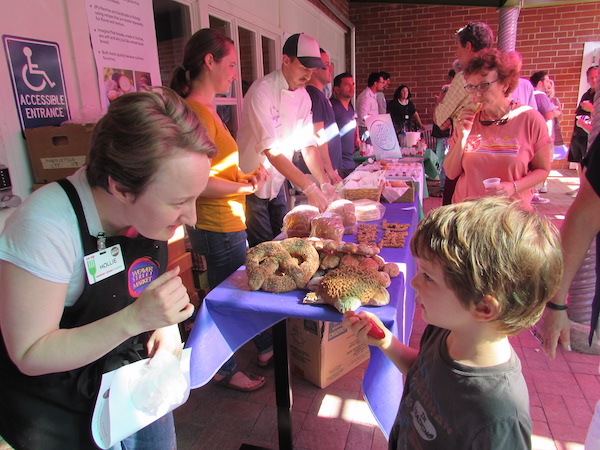
Weaver Street Market
Carrboro, NC
Year founded: 1988
Member equity requirement: $75 individual, $135 couple, $175 three or more
Number of members: 18,000 consumer-owners, 210 employee-owners
Number of staff: 250
Number of locations: 3 retail stores and Food House commissary kitchen
Over the years, Weaver Street Market has enjoyed significant success as an innovator in launching numerous retail stores and developing a commissary kitchen. They also established a hybrid system that allows both consumers and employees to be owners of the co-op. Weaver Street has also been an exemplary role model in the food co-op sector for creating opportunities for owner engagement. The co-op is known far and wide for its strong connection to the communities it serves, regularly bringing people together around the themes of food, music and cooperation.
Given the increasingly competitive nature of the grocery business, Weaver Street leadership is also not taking their owner and community relationships for granted. They are now seeking ways to continue to meet and exceed their needs and will be supported in this effort by being one of the co-ops piloting the Power of Participation (POP Program) developed by the CDS Consulting Co-op. The POP’s purpose is to provide food co-ops ongoing systematic support for strengthening owner relationships and community connections.

Slater said that he thinks that “older definitions” of what participation means (attending co-op meetings, volunteering or voting) may not be as relevant. He thinks there’s a great opportunity for a new way of thinking about co-op participation that acknowledges how people prefer to interact with their co-op, and that co-ops need to set up and improve systems that involve more people in multiple ways.
“Grocery shopping as a task can be impersonal and not fun. We’re different because we want to involve people on the journey,” he said. Slater pointed out that this happens on a lot of different levels in the food co-op. It’s part of the customer service experience in the store, like meeting a trusted producer, or tasting the food. “Different people are attracted to different things. It’s important that we be good retailers for all people by offering healthy options and showing them where their food comes from.”
Slater also said that this is not just the job of the outreach coordinator. “Participation is everybody’s job. It is integrated into everything we do and has strong business results. The well-being of the co-op economy is based on interaction.”
Have more questions?
Get in touch with one of our consultants.
